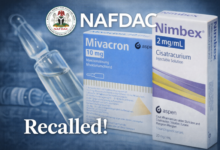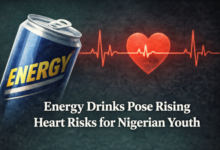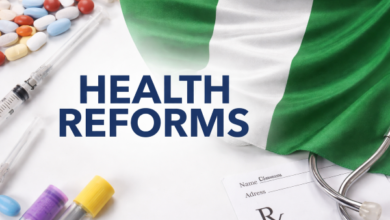
By Abiemwense Moru
In spite of its importance, skin health continues to be marginalised in Nigeria.
Skin health is caught in the crosshairs of unregulated beauty practices, acute shortage of specialists, and poor integration into the broader healthcare system.
In recognition of the significance of skin, World Skin Health Day was recently celebrated as a global initiative by the International League of Dermatological Societies (ILDS) and the International Society of Dermatology (ISD).
The commemoration, observed annually on July 8, aims at educating people on the importance of skin health and to encourage discussions and actions towards improving skin health worldwide.
Skin, the body’s largest organ, serves as a mirror to our health, environment, and society.
From shielding the body against infections and regulating temperature to reflecting internal diseases, the skin plays a vital yet often underappreciated role in healthcare.
Recent developments, however, show a glimmer of hope.
The Lagos State Government has taken a significant step towards protecting citizens by announcing a partnership with dermatologists who will deploy aesthetic medicine.
Aesthetic medicine is the branch of dermatology focused on improving skin appearance through non-surgical means.
The aim is to curb the activities of unqualified practitioners in aesthetic medicine.
The announcement was made by Prof. Akin Abayomi, Lagos State Commissioner for Health, at the 19th Annual General Meeting and Scientific Conference of the Nigerian Association of Dermatologists (NAD), themed “Dermatology and Global Health: Bridging the Gap.”
“As a government, we are very concerned about the trend of unqualified people masquerading as skincare experts.
“These quacks administer treatments that can be dangerous,” Abayomi said.
In response, the Lagos State Health Facility Monitoring and Accreditation Agency (HEFAMAA) has begun scrutinising the booming but largely unregulated aesthetic dermatology market, with plans to work closely with NAD to define and enforce professional boundaries.
The hidden toll of unsafe skin practices is starkly illustrated by 27-year-old Rosa Agu from Anambra , whose pursuit of flawless skin nearly cost her life.
Lured by glowing social media advertisements and influencer endorsements, she visited an unlicensed aesthetic clinic in Lagos that promised dramatic skin-lightening results.
“I was told the cream was herbal and safe.
“But within weeks, my face was burning, peeling, and developing dark scars. I became withdrawn.
“People stared at me on the street; I could not leave my house for months.’’
Agu was later diagnosed with exogenous ochronosis, a severe skin condition caused by prolonged use of hydroquinone, a banned ingredient in many countries.
The delay in getting proper medical attention due to the lack of affordable dermatology services in her area worsened her condition.
With the help of a volunteer dermatologist working with a local NGO, Agu eventually received treatment; but the experience left deep emotional and physical scars.
“I never thought something like skin cream could destroy my confidence, my health, my life; I wish I had known the risks,” she said.
Her story is one among thousands, a sobering reminder of why stronger regulation, education, and access to dermatological care are urgently needed.
Dr Ifedayo Adetifa, former Director-General of the Nigeria Centre for Disease Control (NCDC), highlighted skin health as a vital yet often overlooked component of global health.
He lamented the continued marginalisation of skin diseases in global and national health priorities in spite of their impact on public health emergencies, infectious disease transmission, and quality of life.
This viewpoint was also expressed by Prof. Dasetima Altraide, President of NAD, who raised concerns over the dominance of unlicensed practitioners in aesthetic dermatology.
He called for a stronger partnership between the NAD, government bodies, and medical associations to eliminate quackery and elevate skin health to a global health priority.
More so, experts are concerned on the alarming shortage of dermatologists, with only one specialist available per million people, mostly concentrated in urban areas.
Dr Folakemi Cole-Adeife, a Consultant Dermatologist at Lagos State University Teaching Hospital (LASUTH), highlighted this stark reality.
“We need to train primary healthcare workers to recognise and manage skin diseases at the community level.”
Cole-Adeife argued that integrating skin health into primary healthcare would help manage a significant portion of skin-related Neglected Tropical Diseases (NTDs), which are endemic in Nigeria.
“These include conditions such as tinea, vitiligo, atopic dermatitis, and skin cancers, many of which are stigmatising and poorly understood at the grassroots level,” Cole-Adeife said.
According to her, Nigeria bears more than 25 per cent of Africa’s burden of Neglected Tropical Diseases (NTDs), with skin-related NTDs particularly prevalent in rural areas where healthcare access is limited and public awareness is low.
“The impact of these diseases extends beyond physical health, contributing to stigma, discrimination, and deepening poverty.
“Many of these conditions are preventable or treatable with early intervention, yet they go unnoticed or misdiagnosed due to the lack of training among primary healthcare providers,” she said.
She advocated the inclusion of skin health in the training curricula of primary healthcare workers, ensuring they could identify early signs and intervene before complications arise.
Worthy on note, the health challenges faced by persons with albinism provide a critical lens for understanding the broader skin health crisis in Nigeria.
During the International Albinism Awareness Day celebration in Abuja, Dr Bisi Bamishe, President of the Albinism Association of Nigeria (AAN), called on the government to integrate skin screening and treatment into the National Health Insurance Scheme (NHIS).
“Many persons with albinism cannot afford treatment for skin cancer, which is becoming a leading cause of death in our community.
“Including skin treatment in NHIS could save lives,” Bamishe said.
She also highlighted the educational disadvantages faced by students with albinism due to visual impairments, urging full implementation of the National Albinism Policy on Education.
Prof. Sam Amadi, Chairman of the AAN Board of Trustees, and Mr Kaura Wakili of JONAPWD, echoed same sentiments, advocating for inclusive healthcare, better education policies, and stronger social support for the albino community.
In addition, the misuse of skin-bleaching products has become a global public health crisis.
The International League of Dermatological Societies (ILDS) has raised the alarm on the dangerous use of topical corticosteroids in bleaching creams, particularly in Africa, Asia, and the Caribbean.
Prof. Henry Lim, President of ILDS, described skin-bleaching as a billion-dollar industry with devastating health consequences.
“In many countries, products containing potent corticosteroids are sold over the counter without medical supervision, leading to irreversible skin damage, hormonal disruption, and mental health issues.
“We must ban monotherapies or fixed-dose steroid combinations unless prescribed by professionals,” Lim said.
Dr Ramesha Bhat of India and Dr Ncoza Dlova of South Africa reinforced the urgency of regulatory enforcement, education, and socio-political reform to reduce the demand for skin-lightening products rooted in colourism and societal pressures.
On the way forward, the consensus from both local and global stakeholders is clear: Nigeria must take decisive action to protect skin health.
This includes regulating skincare practices, expanding public education, and strengthening health systems to ensure safe, accessible, and ethical dermatological care for all.
By bridging the gap between dermatology and public health, experts say Nigeria can make skin care not just a cosmetic concern, but a critical part of its health equity agenda. (NANFeatures)
News Agency of Nigeria.












